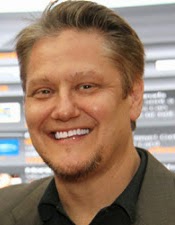Translation: Why do Digital Natives value collaboration over authority?
Leaders in the Cloud Generation not just know this environment, they excel in it.
The next generation of technology decision makers is made up of self-selected masters of the games. They enjoy the flow of learning and solving problems; however, they don’t expect to solve them alone or a single way. Today’s games are not about getting blocks to fall into lines; they are complex and nuanced. Winning is not about reflexes and reaction times; winning is about being adaptive and resourceful.
In these environments, it can look like chaos. Digital workspaces and processes are not random; they are leveraging new-generation skills. In the book Different, Youngme Moon explains how innovations looks crazy when they are first revealed.
How is the work getting done? What is the goal here? These are called “results only work environments,” and studies have shown they increase productivity significantly.
Digital Natives reject top-down hierarchy.
These college educated self-starters are not rebels; they just understand that success is about process and dealing with complexity. They don’t need someone to spoon feed them instructions.Studies at MIT and The London School of Economics have revealed that when high-end results are needed, giving people self-direction, the ability to master complex tasks, and the ability to serve a larger mission outside of themselves will garnish groundbreaking results.
*Gaming does not create mind-addled Mountain Dew-addicted unhygienic drone workers. Digital Natives raised on video games are smart, computer savvy, educated, and, believe it or not, resourceful independent thinkers.
American Inventor Thomas Edison said:
“I didn't fail 3,000 times. I found 3,000 ways how not to create a light bulb.”
Being comfortable with making mistakes thousands of times ’til mastery sounds counter-intuitive until you realize that is how some of the greatest breakthroughs in science and physics were discovered.
Level up: You win the game by failing successfully.
Translation: Learn by playing, fail fast, and embrace risk.
*Digital Natives have been trained to learn the rules of the game by just leaping in and trying. They seek out mentors, learn the politics at each level, and fail as many times as possible in order to learn how NOT to do something. Think about it this way: You gain more experience when you try and fail quickly then carefully planning every step of your journey. As long as you are willing to make adjustments to your plans, experience always trumps prediction.Just like in life and business, games no longer come with an instruction manual.
In Wii Sports, users learn the basic in-game and figure out the subtlety of the game as they level up. Tom Bissel, in Extra Lives: Why Video Games Matter, explains that the in-game learning model is core to the evolution of video games. Game design involves interactive learning through the game experience; consequently, we’ve trained Digital Natives that success comes from overcoming failure.
* Anything with an asterisk designates importance.
Click here to start on PART 1 of our 8 part series.
Cloud Culture 1: How New IT Leaders are Transforming the way We Create and Purchase Technology.

Our point of view: About the authors
Rob Hirschfeld and Brad Szollose are both proud technology geeks, but they’re geeks from different generations who enjoy each other’s perspective on this brave new world.
 Rob is a first-generation Digital Native. He grew up in Baltimore reprogramming anything with a keyboard—from a Casio VL-Tone and beyond. In 2000, he learned about server virtualization and never looked back.
Rob is a first-generation Digital Native. He grew up in Baltimore reprogramming anything with a keyboard—from a Casio VL-Tone and beyond. In 2000, he learned about server virtualization and never looked back.
In
2008, he realized his teen ambition to convert a gas car to run
electric (a.k.a. RAVolt.com). Today, from his Dell offices and local
coffee shops, he creates highly disruptive open source cloud technologies for Dell's customers.
 Brad is a Cusp Baby Boomer who grew up watching the original Star Trek series, secretly wishing he would be commanding a Constitution Class Starship in the not-too-distant future.
Brad is a Cusp Baby Boomer who grew up watching the original Star Trek series, secretly wishing he would be commanding a Constitution Class Starship in the not-too-distant future.
Since
that would take a while, Brad became a technology-driven creative
director who cofounded one of the very first Internet development
agencies during the dot-com boom. As a Web pioneer, Brad was forced to
invent a new management model that engaged the first wave of Digital Workers.
Today, Brad helps organizations like Dell close the digital divide by understanding it as a cultural divide created by new tech-savvy workers ... and customers.
Beyond the fun of understanding each other better, we are collaborating on this white paper for different reasons.
- Brad is fostering liquid leaders who have the vision to span cultures and to close the gap between cultures.
- Rob is building communities with the vision to use cloud products that fit the Digital Native culture.








No comments:
New comments are not allowed.